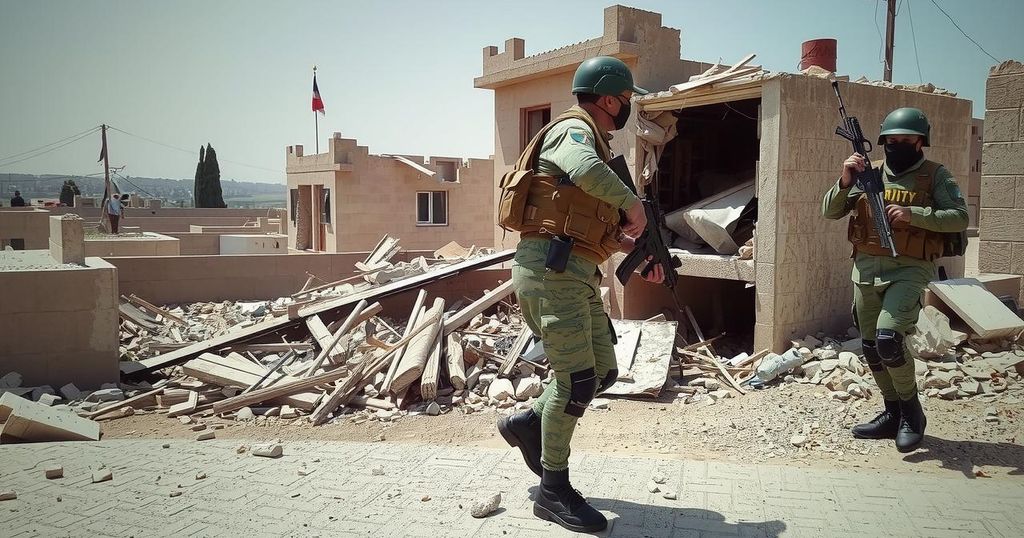Gaza faces a deepening humanitarian crisis driven by lawlessness and gang violence targeting aid convoys amidst ongoing Israeli military operations. Despite international commitments to facilitate aid delivery, rampant theft has compounded humanitarian distress, with serious implications for civilian well-being, particularly among vulnerable populations, including children. Calls for accountability grow amid accusations that Israel is violating international humanitarian laws concerning aid and civilian welfare.
The current humanitarian situation in Gaza is dire, characterized by rampant lawlessness and violence against aid convoys, rendering relief efforts increasingly fraught with danger. Aid procurement under severe Israeli siege has been severely hampered, with reports indicating that theft during transit contributes significantly to the humanitarian crisis, further escalating the suffering of civilians facing extreme cold and malnutrition.
Tom Fletcher, the UN undersecretary-general for humanitarian affairs, has expressed alarm at the deteriorating circumstances, labeling the delivery of aid in Gaza as perilous. Data from the UN reveals that as of late November, at least 333 humanitarian workers have been killed amidst ongoing conflict initiated by a Hamas-led attack on Israel on October 7, 2023.
Despite commitments from the Israeli government to improve conditions for humanitarian assistance, officials have stated that gangs have increasingly disrupted aid deliveries. Reports confirm that thieves have looted substantial amounts of food and resources intended for the beleaguered population, with $9.5 million in aid stolen in October alone.
Moreover, Israel’s recent decision to suspend operations of the UN Relief and Works Agency raises serious concerns, as this agency provides assistance to over two million Gaza residents. International observers note that Israel’s policies appear to contravene obligations under international humanitarian law to ensure the welfare of civilians in occupied territories.
The ongoing violence against aid convoys has resulted in a troubling environment, where even trained humanitarian workers are not safe. Accountability issues arise, raising questions about Israel’s role in the ongoing crisis, particularly as the country has also been implicated in aerial assaults on aid deliveries, leading to significant loss of life among aid workers.
Calls for accountability and adherence to humanitarian principles persist, as experts emphasize the need for a structured and safe system for delivering aid to prevent further exacerbation of the suffering of civilians caught in conflict.
The humanitarian crisis in Gaza has become increasingly severe following an escalation of violence that began on October 7, 2023, catalyzed by a Hamas-led incursion into southern Israel. The ensuing conflict has prompted widespread international condemnation and concern regarding Israel’s management of humanitarian aid to the region. Amid ongoing hostilities, organized crime and gang violence targeting aid convoys have complicated relief efforts, further deepening the humanitarian distress experienced by civilians. International humanitarian law stipulates obligations for occupying powers to ensure the welfare of the civilian population, thus ensuring access to essential resources such as food and medical supplies. The situation in Gaza highlights a critical intersection of conflict, lawlessness, and global humanitarian response frameworks.
The plight of civilians in Gaza remains critical, as rampant violence against humanitarian efforts exacerbates an already severe crisis compounded by widespread poverty and deprivation. While international law mandates proper care for occupied populations, the continued theft of aid and the restriction of access to essential services underscore a failure to meet these obligations. Immediate attention and decisive action are required to restore order and enhance the protection of humanitarian assistance to save lives and alleviate suffering among the population.
Original Source: www.arabnews.com






